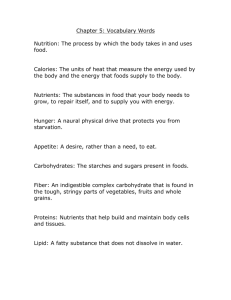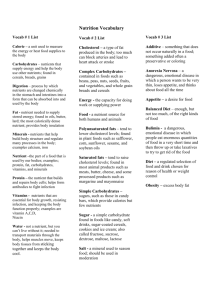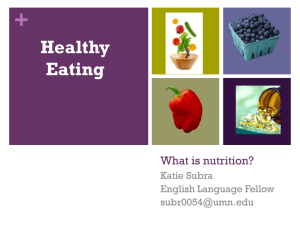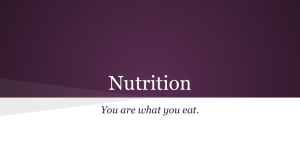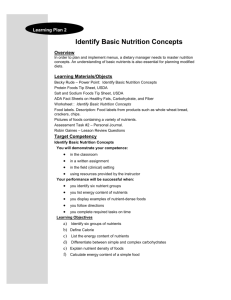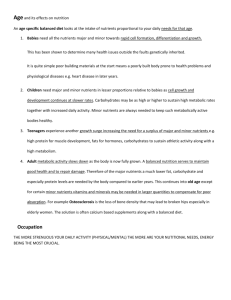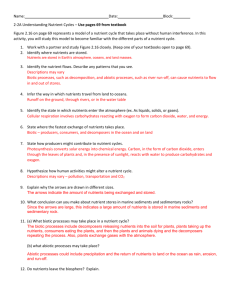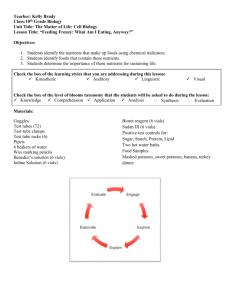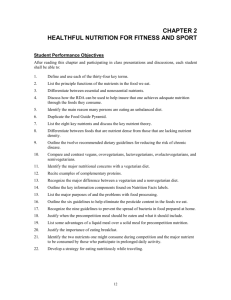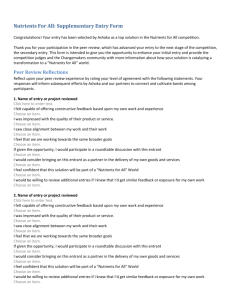Key Terms for Chapter 1
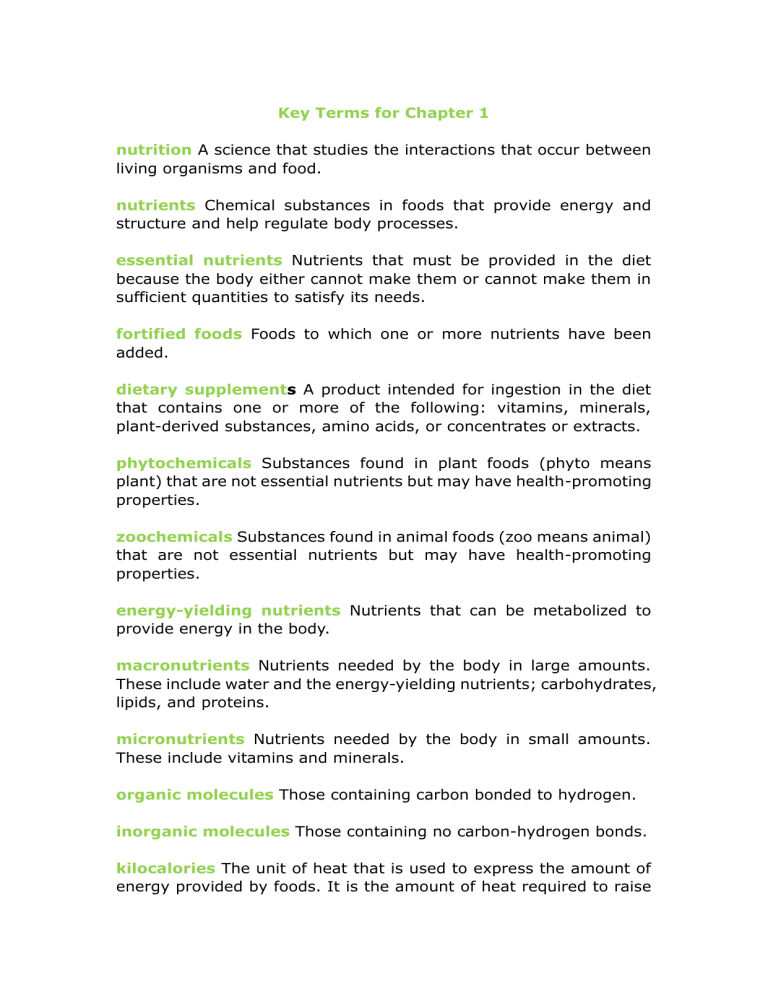
Key Terms for Chapter 1 nutrition A science that studies the interactions that occur between living organisms and food. nutrients Chemical substances in foods that provide energy and structure and help regulate body processes. essential nutrients Nutrients that must be provided in the diet because the body either cannot make them or cannot make them in sufficient quantities to satisfy its needs.
fortified foods Foods to which one or more nutrients have been added. dietary supplement s A product intended for ingestion in the diet that contains one or more of the following: vitamins, minerals, plant-derived substances, amino acids, or concentrates or extracts. phytochemicals Substances found in plant foods (phyto means plant) that are not essential nutrients but may have health-promoting properties. zoochemicals Substances found in animal foods (zoo means animal) that are not essential nutrients but may have health-promoting properties.
energy-yielding nutrients Nutrients that can be metabolized to provide energy in the body. macronutrients Nutrients needed by the body in large amounts.
These include water and the energy-yielding nutrients; carbohydrates, lipids, and proteins. micronutrients Nutrients needed by the body in small amounts.
These include vitamins and minerals. organic molecules Those containing carbon bonded to hydrogen. inorganic molecules Those containing no carbon-hydrogen bonds. kilocalories The unit of heat that is used to express the amount of energy provided by foods. It is the amount of heat required to raise
the temperature of 1 kilogram of water 1 degree Celsius (1 kcalorie =
4.18 kjoules).
metabolism The sum of all the chemical reactions that take place in a living organism. malnutrition Any condition resulting from an energy or nutrient intake either above or below that which is optimal.
undernutrition Any condition resulting from an energy or nutrient intake below that which meets nutritional needs. overnutrition Poor nutritional status resulting from an energy or nutrient intake in excess of that which is optimal for health. genes Units of a larger molecule called DNA that are responsible for inherited traits. nutrient density An evaluation of the nutrient content of a food in comparison to the kcalories it provides.
